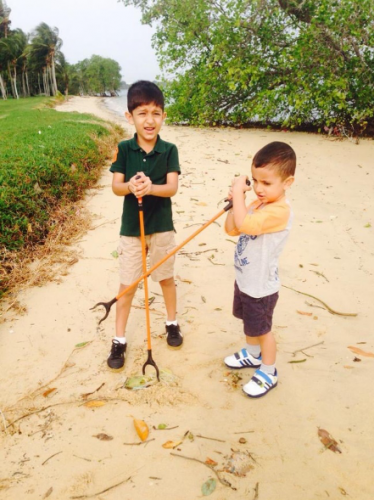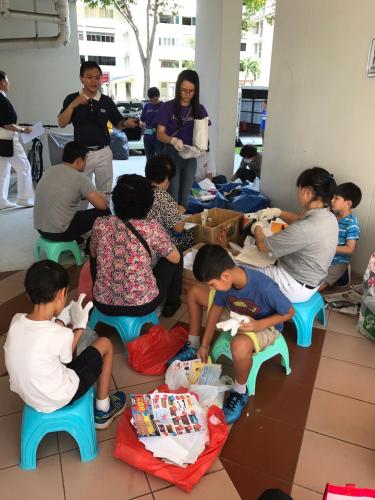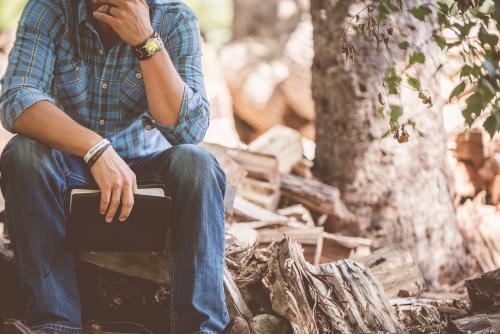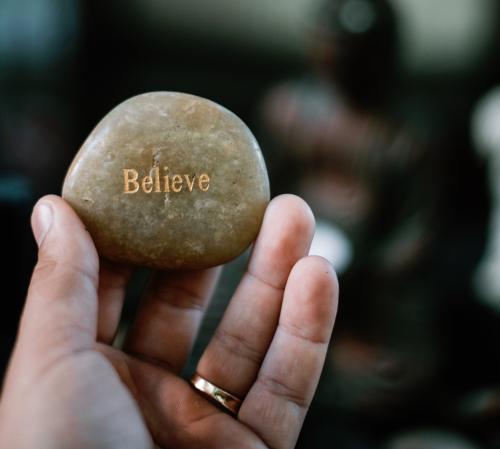By Tania Nagpaul
As I curl up in my office chair to reflect on my journey towards greater eco-consciousness, I'm taken back to 2015, when I was still a PhD student. Five years ago, I was much less aware of environmental and sustainability issues, or how my daily decisions impacted a wider ecosystem. This is in stark contrast to my present state of being extremely conscientious in my daily life and the moment-to-moment decisions I make to be a responsible citizen of the planet.
So how did it all happen?
My journey began when the psychology department head of a university asked if I'd like to teach a "psychology for sustainability" course. I was already teaching at universities prior to taking up doctoral research and he was aware that I was looking for more teaching assignments. However, my immediate thought when I heard this topic was, "What in the world is psychology for sustainability?" To me, the term "sustainability" was nothing more than a buzzword.
Nonetheless, I accepted this assignment with an open mind.
![]()
Image via rawpixel
With the upcoming semester only two to three months away, I had no time to waste. I placed an online order for Brian Scott's Psychology for Sustainability, and couldn't wait to read its entire contents and supplementary resources. However, once I digested all the information, the facts and figures blew me away.
But even more staggering than the data were their psychological underpinnings. Before, I'd always gloated in the pride of being a psychologist—of understanding human behaviour better than laypersons, and of knowing the nuances of human relationships and how we think, feel and act. However, in that moment, I realised there was yet another aspect of human existence I'd not thought about deeply enough. This was the relationship we humans have with our natural environment.
Then came this little epiphany: all that we care for (family, society, economy, ourselves) cannot exist without a liveable planet.

Tania brought her two sons (pictured) for a beach clean-up four years ago. Image courtesy of the author.
For many people, there are psychological barriers—centred around time, convenience and habit—that prevent us from behaving in more sustainable ways. Some of my former "barriers", for instance, would sound like this:
“It's just so much quicker and more efficient to drive to the supermarket for my groceries.”
“I need plastic bags to line my garbage bins.”
“Microwaves are terrible for the environment, but they're so convenient for heating food.”
“Cleaning my kitchen top with paper towels and throwing them in the garbage saves me the trouble of washing and drying washcloths.”
“How will my changing make any difference to the world?”

Image via Unsplash
Each of the above statements stands modified for me today. As a wife and mother of two boys (aged eleven and eight), I use “us” in places where family members have embraced the behaviour change as well.
Today, I no longer drive to the supermarket or any other location within a one-kilometre radius. Instead, my family and I take public transportation, cycle or walk. And rather than cart our purchases back home in plastic bags, it's now routine for us to bring our own cloth carriers. If we forget to do so, we simply postpone our shopping trip.
![]()
Image via rawpixel
At home, plastic and paper waste are separated, and kitchen waste is wrapped in newspaper. I still line my garbage bins with plastic bags, but with proper segregation and management of waste, the plastic bags need only be changed every 10 to 15 days.
As regards microwaving, this was an easy transition. We simply decided not to get another unit when our previous one broke down a year ago. But our kitchen isn't just missing a microwave—you won't find any paper towels here, too, as washcloths are now our go-to's when cleaning surfaces and countertops.
Outside the kitchen, my family spends considerable time sorting through junk mail, letters and school worksheets that are only used on one side. Paper is not sent into the wastepaper basket until it has been utilised on both sides.
 |
 |
Images courtesy of the author
I must stress, at this juncture, that teaching the sustainability course did not act like a magic potion that altered my mindset and behaviour overnight. Rather, I committed myself to a gradual and incremental process to adopt a more conscientious view towards protecting the natural environment. In other words, I put aside earlier misgivings about what little impact a single person's actions could make, and instead took on these little differences as my personal responsibility.
And it seems my individual endeavours have had a multiplier effect. Many others in my spheres of influence (family, students, friends and colleagues) started noticing my sustained and consistent efforts and many (if not all) followed suit!

Tania's two sons (in the foreground) participate in community recycling drives, such as this one organised by Fedex in 2018. Image courtesy of the author.
So how can more of us get on this journey?
To embark on a path towards a more sustainable lifestyle, we first have to understand our psychological barriers. I have identified these to be perceptual limits, belief perseverance and strategic self-presentation.
#1 Perceptual Limits
Perception is the process of interpreting what our senses tell us. For instance, durians have a distinct smell, but whether I regard it as unpleasant or fragrant is influenced by my perception of this sensory information.

Image via Unsplash
This might explain why many of us are unaware of environmental issues or hazards—our senses have not detected them. Take plastic pollution, for example. Even though we may see gory visuals of marine suffocation from plastics or read about damaging effects of using plastic containers, most of us remain unmoved. The reason? The "danger" signs of plastic pollution are too far out of our perceptual reality.
In fact, the ubiquity of plastic in our lives and its innocuous existence in our furniture, sandwich bags, water bottles, phone covers, grocery bags and countless items does not alert us to these potential dangers. On the contrary, we tend to perceive plastic as useful, visually attractive and durable in all its shapes and forms. In the absence of direct sensory warnings, environmental concerns are easy to dismiss.
On the other hand, many Singaporeans are deeply concerned about the haze situation that besets the country every now and then. This goes to show that when we're able to "see" and "smell" an environmental hazard, it's easier for us to perceive the issue and pay attention to it.
However, it is possible to overcome perceptual limitations with deliberate thinking, information-seeking and expanding one's perceptual world via intentional consciousness.
#2 Belief Perseverance
Beliefs, simply put, are things we know and believe to be true. Not only do they imbue us with confidence, beliefs also offer a degree of order in this ever-changing world. Strongly held beliefs can lead to what is known as belief perseverance.

Image via Unsplash
As humans, we have an unshakable drive to maintain our beliefs even in the face of contradictory evidence. When this happens, we introduce biases in our thinking and begin favouring information that confirms our pre-existing beliefs. For instance, climate change deniers rigidly stick to their beliefs about no real danger emanating from rising CO2 levels in the earth’s atmosphere. Despite scientific evidence demonstrating a clear link between human activities and environmental impact, they claim it is a natural phenomenon. On the other hand, they have a heightened awareness around political ideologies, reports, news articles and debates that validate rather than challenge their beliefs.
Cultivating a basic awareness about our beliefs and resulting biases is the first step towards getting past them. I recommend doing a self-check or reflection every time you peruse information regarding environmental degradation. Since we know the power of our beliefs to affect thinking and behaviour, we should instil accurate beliefs systems and mental models around sustainability.
To illustrate with a personal example: let's say that I think or favour the cause of water conservation strongly. This will encourage me to seek out news stories, real-life role models and opinion pieces that reaffirm this belief of mine (that water should be saved). I may even go further by condemning fads like the ice-bucket challenge or water park recreations as these all go against my belief in saving water.
#3 Strategic Self-Presentation

Image via Unsplash
Human beings have an innate need for approval, and desire to be liked and admired. Sometimes, this leads us to engage in behaviours that control others’ impressions of us. For instance, social comparisons can pressure us into behaviours that result in unwarranted conspicuous consumption—when we shop at fast fashion labels, buy expensive cars and gadgets, drink bottled water, travel extensively by air, and so on.
However, the pursuit of status symbols are both intensifying our carbon footprint and interfering with our psychological well-being. In the attempt to be liked by others, many people feel more inclined to "do as others do". But if those we are trying to impress or feel accepted by—family members, friends, teachers, political leaders—are not paying the required attention to environmental concerns, we can conveniently diffuse our responsibility and model their behaviours instead.
This tendency towards strategic self-presentation is not a bad thing, per se. It can in fact be productively channelled towards cultivating more pro-environmental attitudes and behaviours.
As individuals, we each have our own spheres of influence, and are in positions to inspire others by being good role models of sustainable behaviours and choices. Whether you are a parent, co-worker, family member, organisational leader, or social activist, you have ample opportunities to lead by example.
Five years. Sixty months. One thousand, eight hundred and twenty-five days. That's how long I've been on this journey, and I am grateful to be treading this path, even if I stumbled onto it in the beginning.

In 2019, Tania visited the Semakau Landfill to better understand waste management in Singapore. It was organised by Secondsguru, a platform promoting green living. Photo courtesy of the author.
I hope that this article urges readers to get on a similar voyage, and to grow in both eco-consciousness and conscientiousness. All it requires is an open mind and sincerity. Along the way, you may meet obstacles, but slowly and steadily we can all make a collective difference.
Banner image via rawpixel
 |
Dr Tania Nagpaul oversees research at the Lien Centre for Social Innovation. She received her PhD in Psychology from Nanyang Technological University in 2017 and has rich experience in qualitative and quantitative research through projects spanning several socially relevant issues. A psychologist by training, Tania believes strongly in applying psychological principles to understand social and community-level phenomena. She is extremely passionate about conducting action research that has social impact. Tania can be reached at tanian@smu.edu.sg |








Comments
- Reply
Permalink